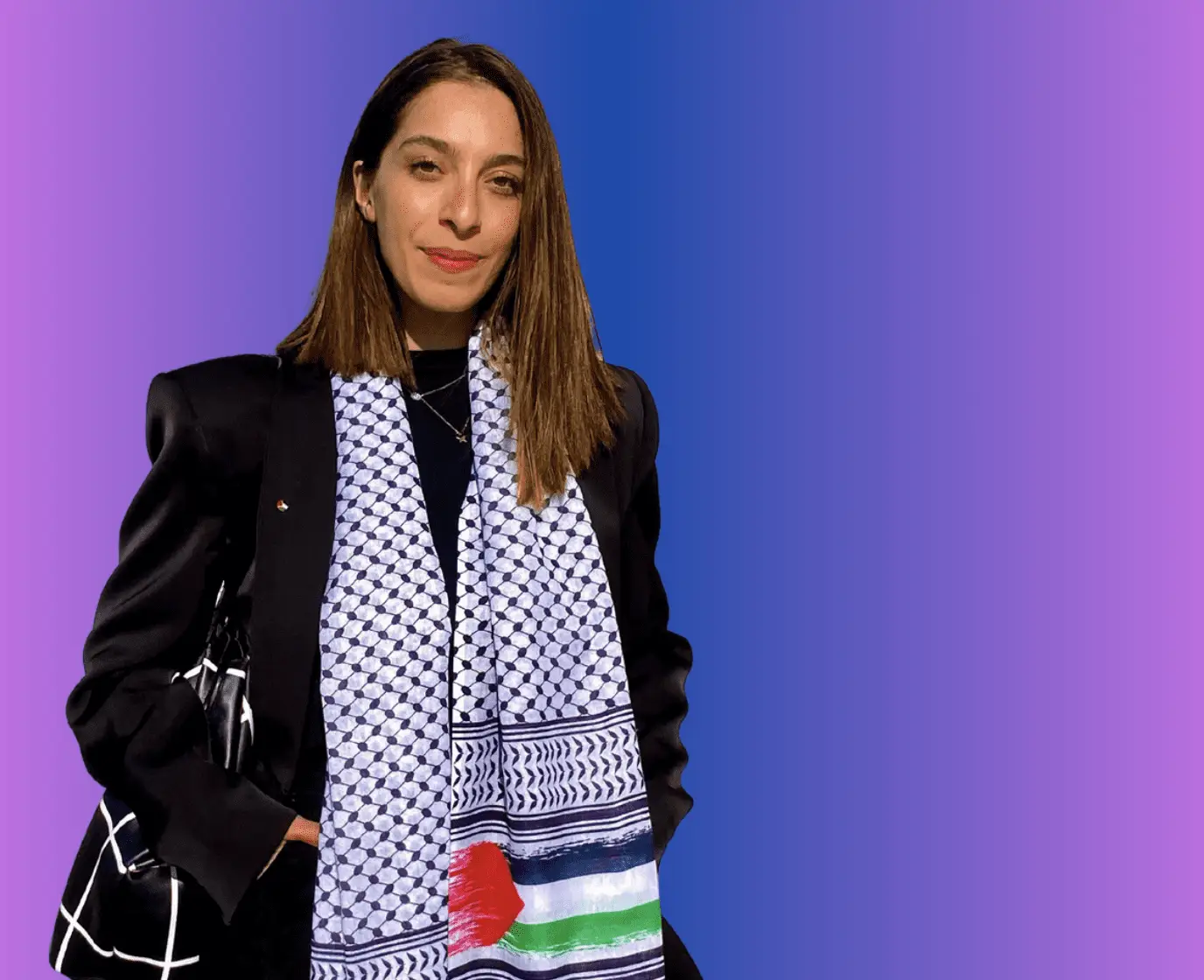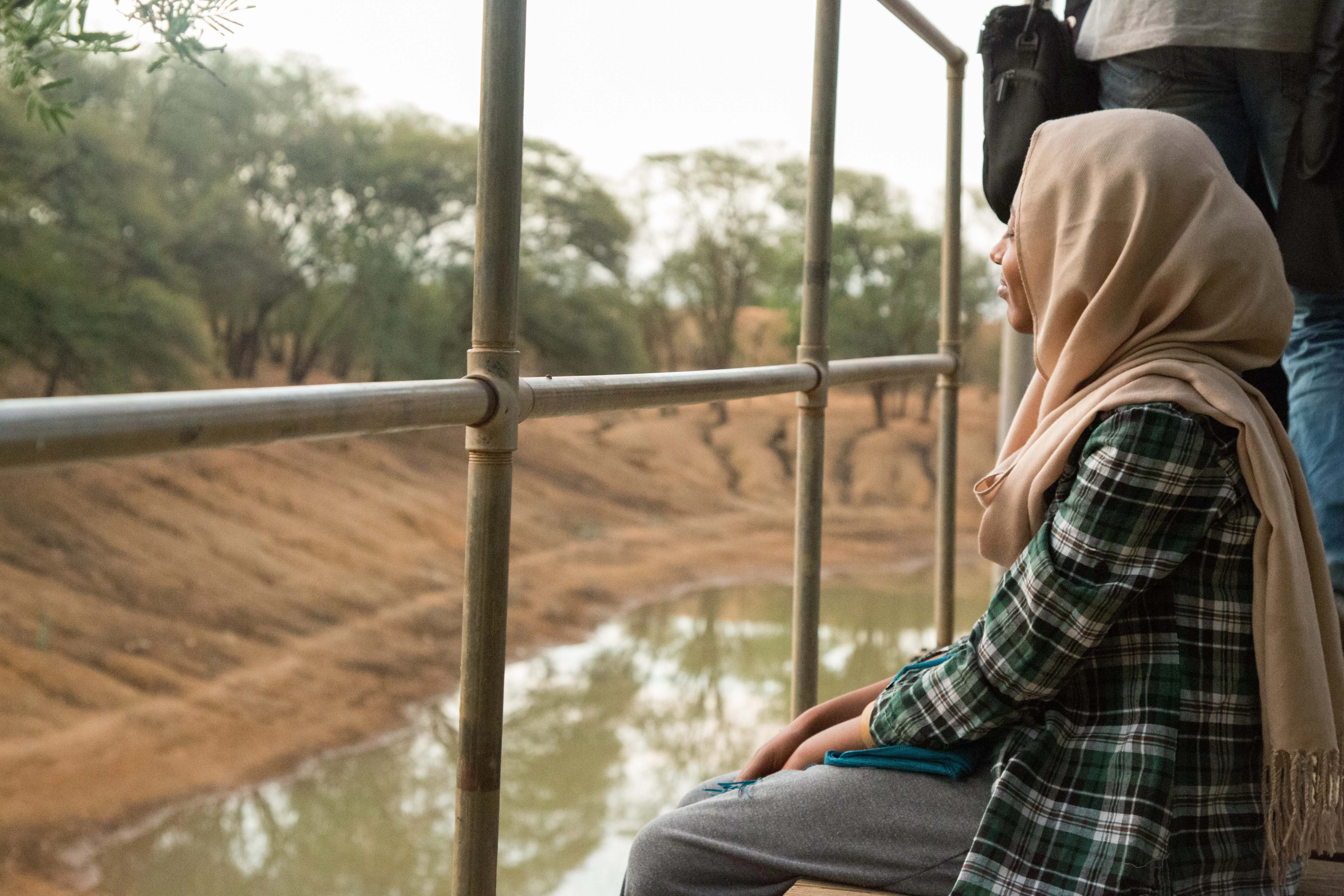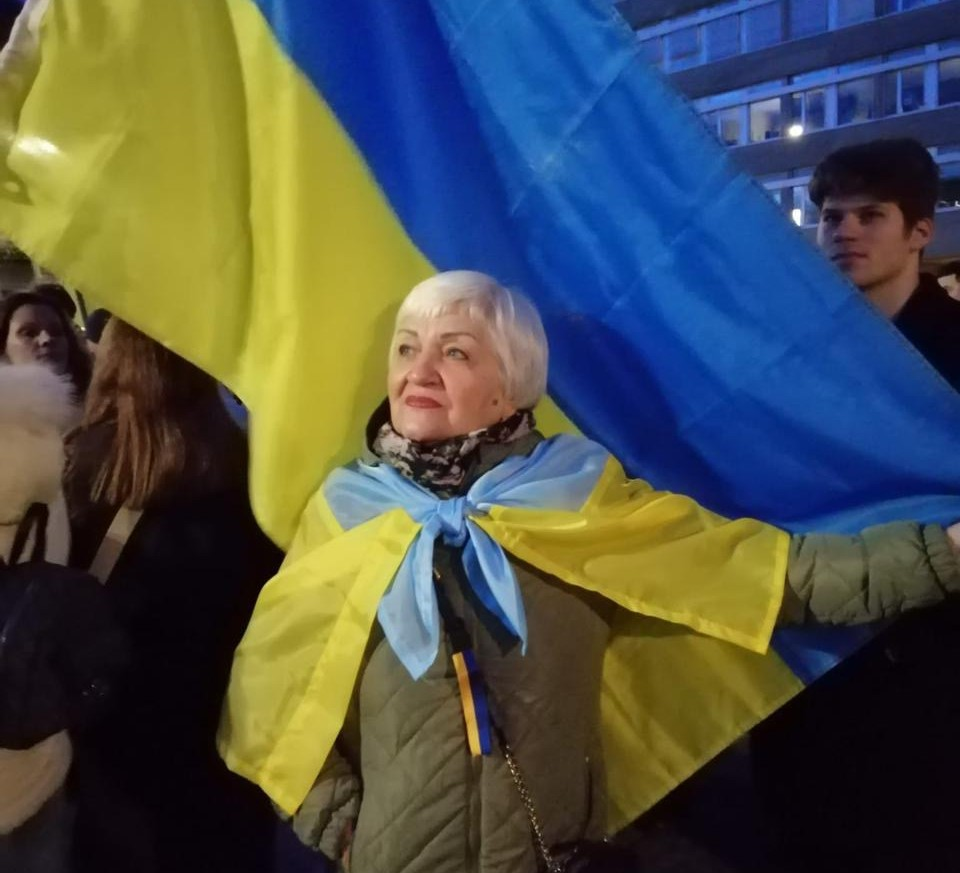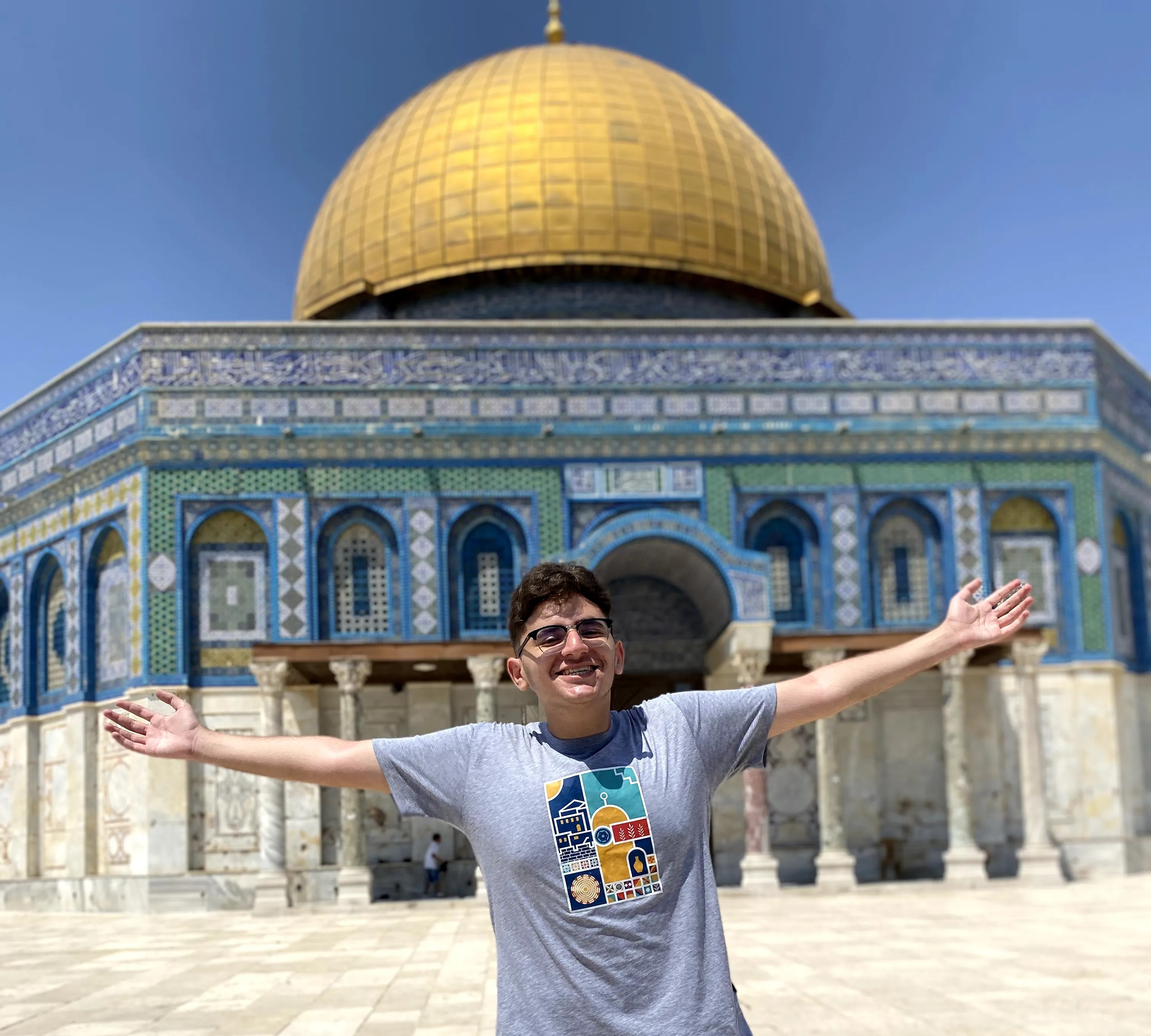
I am part of a family of seven: five siblings and two parents. We were all born and raised in Mar Elias Camp, the smallest refugee camp in Lebanon. Despite living in a refugee camp, my family enjoyed a good socioeconomic status which allowed me to attend a Lebanese school. However, this experience opened my eyes to a different reality. I began to feel different and less than those around me, and I couldn't understand why.
Living in the refugee camp was not due to financial problems but rather to show our attachment to our Palestinian identity. Some families believed that living in a refugee camp meant that we were still attached to this identity and that leaving the camp meant losing it.
As a child, I didn't fully understand what we were going through as Palestinians in Lebanon, but I knew something was off. I remember standing on the roof of our house and seeing the Ramle Bayda sea and wondering if I would ever get outside of this area. It never occurred to me or my family that we would one day move out of the camp.
I recall exchanging stories about being Palestinian with my siblings. One particularly hurtful memory was when one of my siblings shared how her teacher directed hurtful comments at her, such as "If you hadn't sold your houses in Palestine, you wouldn't have been here" or "You are a betrayal to your country." As children, we couldn't fully process these hurtful comments, but we certainly felt different.
Living in a refugee camp felt like living in a box. The overlapped houses made the sky look narrower, and we never imagined experiencing full freedom, even in the simplest form of enjoying safety and security. It was an emotional burden that weighed heavily on me, and I longed for the day when I could live without feeling confined to a small space.
When I entered high school, I attended a UNRWA school. This transition from a private school to a Palestinian school changed my perspective and eventually led me to study social work. I felt like I belonged to this community, which was different from my sister's experience. Even my accent changed, which my parents couldn't understand, but it was a small price to pay for feeling like I fit in with the other students.
Attending school was challenging because of its location in a sensitive political area which made it stressful to attend school. I had to walk back home, passing through other refugee camps, but I was curious to explore the realities there. Some of the people I knew had to deal with violence at home and eventually turned to drug dealing despite their intelligence.
The atmosphere was always down, and students were generally unhappy. Witnessing the struggles of Palestinian students made me realize that I wanted to go back and give back to my community. Even the education system was threatened by the political turmoil, and it would shut down whenever political problems emerged.
I remember former students coming back to share their successful experiences outside, and I always imagined myself doing the same, coming back to inspire my community. This became the first thing I did after returning from an exchange program in the US.
As time went by, I realized that so much needed to change in our community. Girls were not allowed to come back home late because of safety issues, but we rebelled. International people would come to collect footage and interview people without anyone's consent, and then leave. There was no safety or respect for our privacy, and we had no idea where the footage was being shared, which portrayed an image of us as victims.
Seeing some of the people I knew become drug dealers and alcoholics after being subjected to violence at home and school fueled my need to bring change.
My family and I were able to move outside the refugee camp, hoping for a better life. However, the reality was harsher than we could have imagined. We faced racism and discrimination simply because of our Palestinian heritage. I wondered why my family never fought back against our neighbors and the community that hurt our dignity. I never felt like I belonged there, and it was a continuous struggle.
Even when I left for Europe to pursue my master's, I found myself constantly reminded of the injustices and inequalities that I had experienced back home. I looked back at the airport and told myself that I would never come back. Life was a constant struggle, and it seemed like there was no end to the discrimination.
After leaving my job in one of the NGOs I was working in, I found out that I couldn't receive my end-of-service benefits just because of my identity as a Palestinian. I had a significant amount of money that I could have been compensated for, but I never received it because I didn't have a work permit to present to the NSSF, the National Social Security Fund responsible for disbursing the funds. The money was always sent from the employer to Social Security, which kept the money for itself. They offered me only a limited percentage of what I should have gotten after two years of work (around 5%)! It was a slap in the face, a reminder that I would always be viewed as less than human because of where I came from.
Despite all of this, I still clung to the hope that Lebanon could be my home. But as time passed, that hope faded away. How could I call a place home when it didn't even recognize my existence? When I was denied the most basic rights and freedoms simply because of who I was? It was only my Palestinian community that kept me connected to Lebanon, a reminder that I was not alone in my struggles.
I am still confused about whether to call Lebanon my home or not, considering how the country doesn't provide me with basic human rights, neither at work nor at school. I remember going to register for a public school, and they told me that I needed to be put on a waiting list because Lebanese students had to be given priority. The rest of the places would be given to Palestinians, Syrians, and migrant workers, but that still didn't guarantee a place for us.
Eventually, I applied for the Erasmus program and got accepted, but I faced challenges in getting my visa from the Portuguese embassy. They didn't reject my application, but they didn't respond for three months. The classes had already started, and I knew I had lost this opportunity. I shared my story on social media to raise awareness about the unfair treatment of Palestinians, and my friends even started a petition to help me get the visa. Their support reached many people, including a Portuguese journalist who wrote an article about me. Finally, the issue reached the Portuguese parliament and officials, and it was only then that I received the visa that I had been waiting for. They didn't even recognize the Palestinian passport or travel document, making it impossible for us to exist on their system. I found out that there were other cases of students who lost opportunities two years ago but didn't speak up. We need to start looking at reforming visa procedures and policies at embassies to ensure fair and equitable treatment of Palestinian passport holders is essential. The recognition of Palestinian travel documents should be enforced to provide Palestinian refugees with the same rights and opportunities as other travelers."
I arrived in Portugal, ready to start a new chapter in my life. The peacefulness of this place is almost overwhelming. Back home, the constant noise was a part of life, but here, I can finally breathe. As I traveled throughout the country and beyond, I reflected on the experiences that brought me to this point. I knew that I wanted to use my voice to help my people, to speak out about the struggles and injustices that we faced as Palestinians.
The truth is, as a Palestinian, I know that I will never truly live a normal life. Without a passport that grants me basic human rights, I am always in a state of limbo, never fully belonging anywhere. Despite living in Europe for two years now, I still face the same struggles as any other stateless person. It's a constant reminder that I will never truly escape the reality of my past and that the struggles and hardships that I faced as a child will always be a part of me.
Instead of hiding behind the stereotypes and prejudices that often come with being a Palestinian, I've made it my mission to speak out and challenge the taboos that have kept us down for so long. I'm not afraid anymore to tell people where I come from, to share my story and the stories of those who have suffered alongside me. Even though it's often difficult and emotionally draining, I know that it's important to keep fighting and keep pushing for change in my community and beyond.
Growing up in a refugee camp, I never experienced the joy of playing in a proper playground. It was a luxury that we couldn't afford. But when I arrived in Europe, seeing children running around and laughing in playgrounds was a stark contrast to what I had known. The absence of playgrounds in my community was just one small example of the many challenges we faced on a daily basis. Every child deserves the right to play and have access to safe and enjoyable spaces, regardless of their circumstances.
I dream of one day visiting Palestine, of seeing the land that my grandmother always spoke so fondly of. Grandma's stories about Palestine resonated with me and I now cherish the horse brush and soil she once gave me as a reminder of my heritage.
Being a high achiever has its emotional costs that nobody talks about. As a leader, the pressure can be overwhelming, especially when you have to accomplish things alone. It drains my energy, and that's why I don't plan for the long term. All I crave is physical stability because it is crucial for my mental health. Moving from place to place has been my life for years, and I have no intention of thinking long-term anymore. Refugee life requires you to focus on the present.
Instead, I am dedicating my energy to my community. My heart goes out to them, and I want to create a realistic social intervention that will help them. They deserve playgrounds, shelters, libraries, and education. I plan to start where I was born and raised. Visiting the refugee camp always brings back a lot of memories, and I feel authentic. I understand the people and the factors that affect their lives. I want to make a difference and not allow history to repeat itself. Many people leave these communities and never look back, but I understand them. If you can bring change, then do it.
Refugees are often treated like numbers, like statistics that can be ignored or dismissed. But we are so much more than that, we are individuals with our own stories, our struggles, and our hopes for the future. We deserve to be heard, to be taken seriously, and to be given a voice in the decisions that affect our lives.
As a refugee, I understand the importance of having a passport. It's the most crucial human right, and it's a tool to practice our basic human rights. However, having a passport doesn't mean we've given up our identity. We are still Palestinians, and we should not be treated differently or categorized into separate boxes.
After all the achievements I've worked hard for and the people I've met, I can't go back to square one. I refuse to let my impact slow down. I believe that it’s selfish to live in the best conditions and reject knowing more about the realities of those around us. As humans, we have the responsibility to understand what’s going on around us.
As someone who grew up in a tense and challenging community, expressing my pain through anger was the norm. Even my rebellious acts were aggressive. Back then, I had so much energy to fight and stand up for what I believed in. But as I've grown older, I've realized that there are better ways to fight for change. Now, instead of lashing out with anger, I channel my passion and frustration into education and activism. I organize panels and events to raise awareness about the issues that matter to me, and I work tirelessly within my organization to make a positive impact. Living in a refugee camp can be incredibly difficult, and there's often not much space to express yourself healthily. It's easy to feel overwhelmed and to lash out without a strategy.
That's why I'm passionate about supporting young people who are going through what I went through. I see so much potential in them, and I want to help them reach their full potential. I want to make sure they have the tools and resources they need to succeed, whether that's through education or simply being a supportive presence in their lives. Additionally, I strongly believe in supporting refugee-led organizations. These organizations are often led by refugees themselves or have a strong focus on empowering refugees. They possess a deeper understanding of the needs and challenges faced by individuals and communities in such situations. By supporting these organizations, we can directly contribute to providing assistance to refugees and making a positive impact on their lives.
As I've traveled the world and met people from all walks of life, I've come to realize how privileged I am to have these experiences. Unfortunately, many refugees are not afforded the same opportunities. I fear losing this wealth of knowledge and understanding, and I want to use it to make a positive impact on the world.
So to anyone who reads this, I urge you to take the time to learn more about the refugee experience, and to understand the struggles and hardships that we face on a daily basis. We need to raise awareness about refugees and amplify their voices by sharing their stories and advocating for their rights. It is not enough to simply pay lip service to the idea of helping others, we must take action.
Remember, supporting refugees is an ongoing commitment, and it's crucial to respect their agency and autonomy. Collaborate with refugees, listen to their needs, and work together to empower them to lead the change they wish to see in their lives and communities.
To my fellow refugees, I say this: never give up hope, never give up the fight. We may face countless obstacles and setbacks along the way, but we must always remember that our struggles are not in vain. With each small step we take, we bring ourselves one step closer to the freedom, justice, and peace that we so desperately seek.


